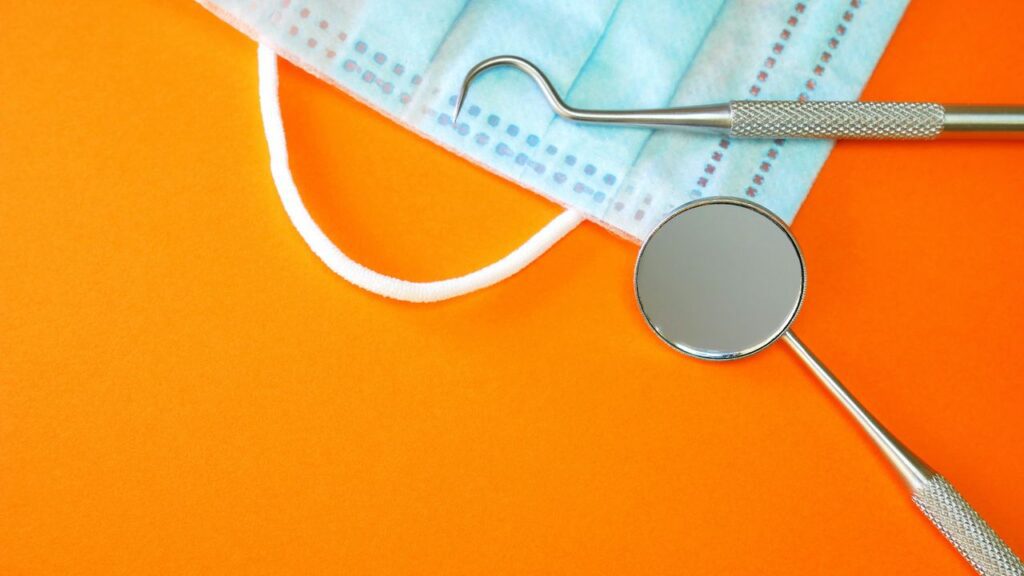Good oral hygiene is essential to prevent root canal treatment. Plaque buildup on teeth can lead to decay and infection. When this happens, the pulp inside the tooth becomes infected. This infection can cause severe pain and may require root canal treatment. By maintaining good oral hygiene, you can avoid these problems.

Daily Oral Hygiene Routine
A proper oral hygiene routine helps keep your teeth and gums healthy. Follow these steps every day to maintain good oral health. Brushing twice a day removes food particles and plaque. Using fluoride toothpaste strengthens tooth enamel. Flossing daily removes plaque between teeth. Rinsing with mouthwash kills bacteria. Regular dental visits help catch problems early.
Brushing Techniques
Proper brushing techniques are crucial for effective cleaning. Brush for at least two minutes each time. Use a soft-bristled toothbrush to avoid damaging your gums. Brush all surfaces of your teeth, including the fronts, backs, and chewing surfaces. Angle the brush at 45 degrees to the gums. This helps remove plaque from the gum line. Replace your toothbrush every three to four months. An old toothbrush won’t clean as well. Consider using an electric toothbrush for more effective cleaning. Electric toothbrushes can remove more plaque than manual ones.
Flossing Techniques
Flossing is essential for removing plaque and food particles between teeth. Use about 18 inches of floss each time. Wrap the floss around your middle fingers, leaving about two inches of floss to work with. Gently slide the floss between your teeth. Curve the floss around each tooth in a C shape. Move the floss up and down to clean the sides of the teeth. Be gentle when flossing to avoid damaging your gums. If you find flossing difficult, consider using floss picks or a water flosser. These tools can make flossing easier and more effective.
Using Mouthwash
Mouthwash can help kill bacteria and freshen your breath. Use mouthwash after brushing and flossing for the best results. Swish the mouthwash in your mouth for at least 30 seconds. Spit it out and avoid eating or drinking for 30 minutes afterward. Choose an antibacterial mouthwash to help reduce plaque and gingivitis. Mouthwash is not a substitute for brushing and flossing. It is an additional step to help maintain oral hygiene. Look for mouthwash with the American Dental Association (ADA) seal of approval.
Preventing Root Canal Treatment
Maintaining good oral hygiene is the best way to prevent root canal treatment. Avoid sugary foods and drinks, as they can cause tooth decay. Drink plenty of water to help wash away food particles and bacteria. Chewing sugar-free gum can also help increase saliva production, which helps clean your mouth. Visit your dentist every six months for regular checkups and cleanings. Your dentist can catch problems early and provide treatment before they become severe. If you experience tooth pain or sensitivity, see your dentist immediately. Early treatment can prevent the need for a root canal.
Post-Root Canal Oral Hygiene
After root canal treatment, it’s essential to follow a good oral hygiene routine. Clean the treated area gently to avoid irritation. Use a soft-bristled toothbrush to brush your teeth. Continue flossing daily to remove plaque between teeth. Rinse with mouthwash to kill bacteria and keep your mouth clean. Follow your dentist’s instructions for post-treatment care. They may recommend specific products or techniques for cleaning the treated area. Proper care after a root canal can help ensure the success of the treatment and prevent future problems.
Frequently Asked Questions
Will a root canal tooth eventually fall out?
A tooth treated with a root canal can last for many years if properly restored and maintained. However, the tooth may eventually fail if you don’t protect it with a crown or develop complications like fractures or reinfection. Regular dental check-ups help ensure the long-term health of a root canal-treated tooth.
Do teeth become weak after a root canal?
A tooth can become more brittle after a root canal since the procedure removes the tooth’s internal nerve and blood supply. Dentists typically recommend placing a crown on the treated tooth to provide additional strength and protection against potential fractures. Proper restoration allows a root canal-treated tooth to remain functional for many years.
Can I drive myself home after a root canal?
Yes, you can drive yourself home after a root canal if we only used local anesthesia. However, if you receive oral or IV sedation, you’ll need someone to drive you home because the effects can impair your coordination and reaction time.
Should I floss before or after brushing?
We recommend you floss before brushing. Flossing first removes debris and plaque between teeth, allowing fluoride from the toothpaste to reach those areas more effectively. This sequence improves overall oral hygiene and cavity prevention.
How many days does it take for plaque to turn into tartar?
If you don’t remove plaque, it can harden into tartar within 24 to 72 hours. Once tartar forms, only a dental professional can remove it. Consistent brushing and flossing help prevent plaque from becoming tartar.
What is the best toothpaste to remove plaque and tartar?
Toothpaste with fluoride and tartar-control agents is best for preventing and removing plaque and tartar. Products with ingredients like pyrophosphates or zinc citrate are particularly effective. Your dentist can recommend a specific brand based on your oral health needs.
What is the 333 brushing rule?
The 333 brushing rule refers to brushing for 3 minutes, 3 times a day, and replacing your toothbrush every 3 months. While brushing twice daily is sufficient for most, this rule emphasizes thorough oral care and regular toothbrush maintenance to ensure effectiveness.
